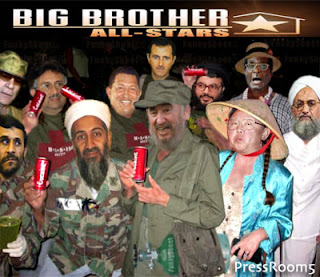Patriot Act Ruled Unconstitutional By U.S. Judge
 A law allowing federal anti-terrorism agents to access information on the U.S. public without a warrant has been ruled as unconstitutional by a US judge in Washington D.C.
A law allowing federal anti-terrorism agents to access information on the U.S. public without a warrant has been ruled as unconstitutional by a US judge in Washington D.C.Victor Marrero said Congress exceeded its authority by allowing the FBI to keep requests secret under the Patriot Act, passed after the 9/11 attacks.
He said the act offended constitutional principles of checks and balances, and violated the guarantee of free speech.
The requests were mainly for financial, telephone and internet records on suspected terrorist in the U.S.
Judge Marrero said his ruling would not take effect immediately, thus giving the government time to appeal.
The Patriot Act allows for the use of national security letters, or administrative subpoenas, in cases relating to spying or terrorism.
Under such a subpoena, personal records of clients and customers must be handed over to the FBI from such sources as banks, telephone firms and internet service providers.
Judge Marrero ruled in favour of the American Civil Liberties Union, which had complained against the use of such letters.
He said his ruling did not mean the FBI must get court approval before ordering records, but that it must be able to justify why the request should be kept secret.
In the year before the 11 September 2001 attacks, the FBI issued about 8,500 national security letter requests.
A government report earlier this year said requests had risen from 39,000 in 2003 to about 56,000 in 2004 before falling back to about 47,000 in 2005.
Click Photos For More Videos!
 Play Video
Play VideoJudge Throws Out Parts of the Revised Patriot Act
WXXA FOX 23 Albany - (WXXA)
Sep. 07, 2007. 09:35 AM EST
 Play Video
Play VideoReport: FBI Abused the Patriot Act
Associated Press - (APTN)
Mar. 09, 2007. 06:21 PM EST
A newly released audit has found that the FBI improperly and, in some cases, illegally obtained personal information about people in the country. (March 9)




















